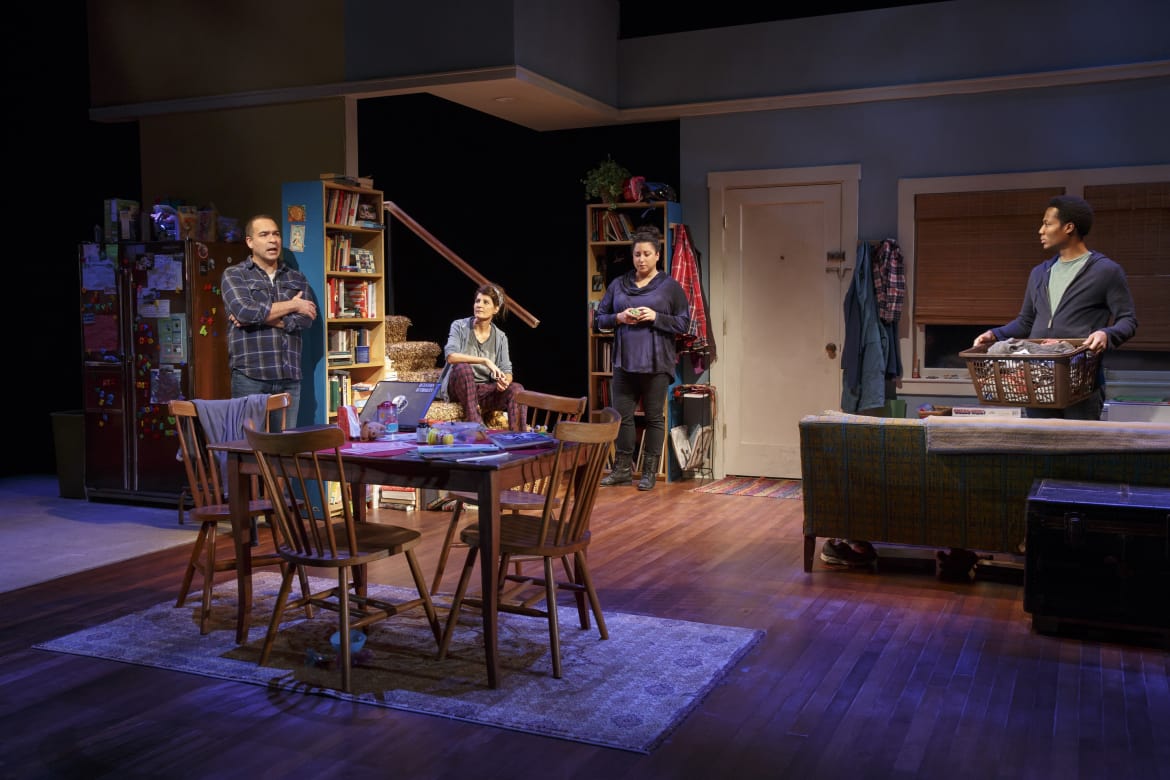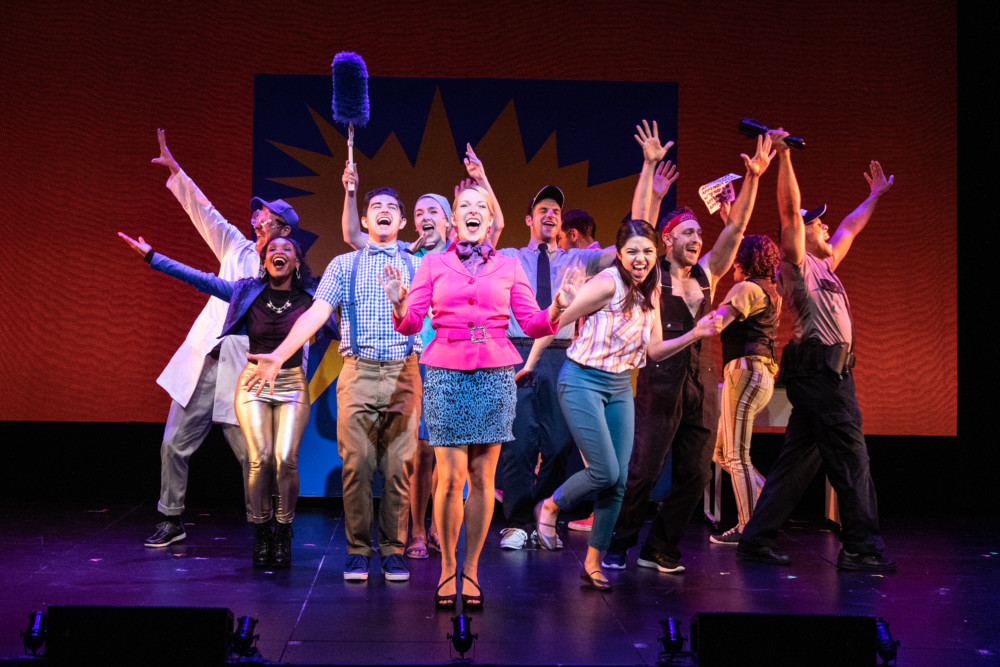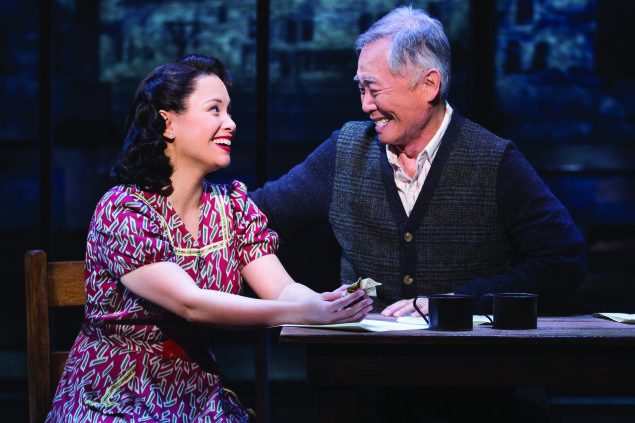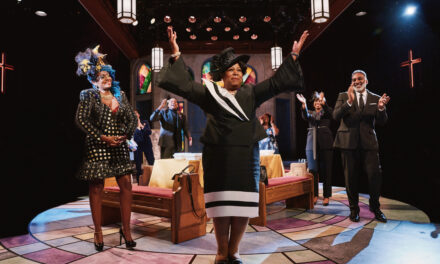By Samuel L. Leiter
Ah, the variety of New York theatergoing! One night it’s the raucous, decadently spectacular, nearly three-hours-long, jukebox musical Moulin Rouge in Broadway’s grand, lushly appointed, Al Hirschfeld Theatre. The next it’s the quietly sophisticated, cabaret-style, 90-minutes-long, jukebox musical Love, Noël in the intimate environs of the teeny-weeny W. Scott McLucas Studio Theatre at the Irish Rep.
As its full title makes clear, Love, Noël: The Songs and Letters of Noël Coward offers an evening of the writings, both musical and non, of the witty British bon vivant (1899-1973) whose 14 distinct artistic talents—from painter to novelist to playwright to composer to lyricist to director to actor, and so on—were summed up by Lord Mountbatten on “the Master’s” 70th birthday.
Coward’s name-dropping words, in a show “devised and written by” Coward expert Barry Day, are in the hands and voices of two of New York’s most celebrated cabaret performers, KT Sullivan and Steve Ross (the “Crown Prince of Cabaret”), under the delicate direction of Charlotte Moore. They perform in a blue, art deco-styled space, designed by James Morgan and lit by Michael Gottlieb, around a baby grand. An alcove reveals a not very convincing bust of Coward looking on.
Day’s script recreates the mood of elegant lounges and dry martinis where one imagines the likes of Coward and his ilk were prone to spend their evening hours. As such shows are wont to do, it encapsulates its subject’s life in brief highlights, those on view here taken from letters by both Coward and his glittery friends, with nearly two dozen tunes from the Coward songbook. These range from the very familiar (at least, to those of a certain age) to selections little known to the non-cognoscenti.
We thus enjoy classics like “I’ll See You Again,” whose sweet sentimentality is perhaps Coward’s most delicious musical contribution (with “If Love Were All” a close second), and the always amusing, “Mrs. Worthington,” in which the eponymous lady is advised not to put her daughter on the stage.
But we also laugh at the comic ingenuity of “Bronxville Darby and Joan,” a duet in which a married couple, admired for their mutual affection, sing of how much they abhor each other. Just as funny is “Why Do the Wrong People Travel,” performed by Sullivan in the brash, New York manner of Elaine Stritch.
Stritch is only one of the names dropped along the way, so you’ll feel better if you recognize the allusions to, not only that great dame, but the Lunts and Fontannes, the Ferbers, Brynners, Lawrences, Garbos, and Dietrichs. The Queen Mother also gets her dibs.
Among the other biographical allusions—aside from Coward’s residences, travels, and lovers—are those to his major film and theatrical achievements. Getting particular attention, of course, is Private Lives, his most famous play, with its ironic reference to the “cheap music” of “I’ll See You Again.” (If you’re going, brush up on its lyrics for the curtain-call singalong.)
Ross, decked out in black tie and tux, shifts back and forth between his own laid-back persona and that of the similarly casual Coward, now and then rising to walk about. The 80-year-old performer, who looks a bit frail, seems more comfortable, however, sitting at the ivories, where he chats, sings, and effortlessly accompanies himself and his partner in their Cowardly rambles. He tends to speak-sing the more challenging notes, but his subtle interpretations of Coward’s oeuvre is always pinpoint accurate. A line or two may have eluded him the night I went but he never lost his cool composure.
Sullivan, a soprano who can also belt, has a warm, refined manner combined with an earthy attitude suggesting she’d as soon share a beer with us as a martini. With her fashionably upswept blonde hair set off by a striking red silk poncho with black sequin design, she gets several chances to alter her accent and do brief impressions, her comic acting talent covering any gaps in her transformational abilities.
I saw Love, Noël with someone from a generation less familiar with Coward’s work than mine. Her tepid response to much (not all) of it suggests that the once wider (but never universal) appeal of Coward’s material is vanishing. However, if you’re someone who knows all the words to “I’ll See You Again,” I suspect you’ll appreciate hearing it again at the Irish Rep.
Photos: Carol Rosegg
Love, Noël: The Songs and Letters of Noël Coward
Irish Repertory Theatre
132 W. 22nd St., NYC
Through August 25
























